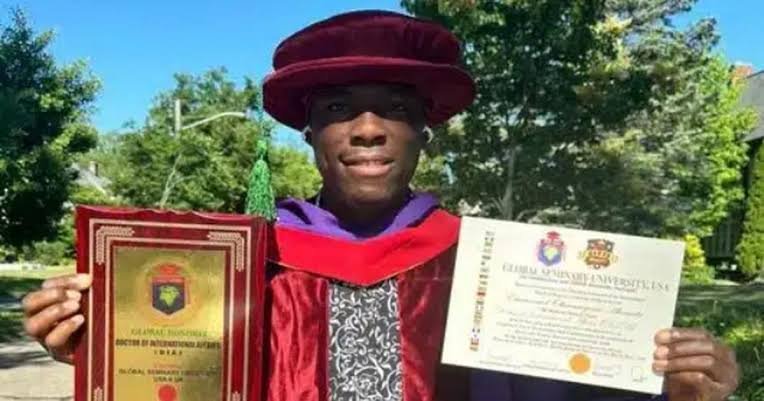The Education Minister has stirred up controversy by declaring that students must be at least 18 years old to take the West African Examination Council (WAEC) and National Examination Council (NECO) exams. FAROOQ KPEROGI offers a detailed analysis of the situation
Education Minister, Professor Tahir Mamman’s directive to the West African Examinations Council (WAEC) and the National Examinations Council to refrain from registering candidates under 18 for next year’s school certificate exams has sparked an immediate backlash from those who seem unaware of the psychological and philosophical reasons behind age benchmarks in education.
Globally, children typically begin primary school around age 6, and young adults generally start university at 18. This was once the standard in Nigeria until parents began to circumvent the law, disrupt long-established practices, and engage in what can only be described as widespread child abuse in the name of accelerating their children’s education.
Contrary to what some media reports suggest, Professor Mamman has not introduced a new law; he is merely enforcing an existing one. He hasn’t “banned” students under 18 from taking school certificate exams; instead, he is simply upholding a law that has been repeatedly flouted by overly ambitious parents eager to push their children ahead, regardless of the evidence provided by science, common sense, and the law.
The 1982 education policy, known as the 6:3:3:4 system, mandates that children must be at least 5 years old to begin pre-primary school and at least 6 years old to start primary school. Following this structure, a 6-year-old who spends 6 years in primary school, 3 years in junior secondary school, and another 3 years in secondary school would naturally be 18 by the time they graduate from secondary school.
This is a globally recognized standard. In countries like the United States, Finland, Canada, the Netherlands, Japan, South Africa, Germany, the United Kingdom, France, and Denmark, students typically enter university at age 18. The age benchmark is not arbitrary but is grounded in longstanding insights from developmental psychology and educational research, which have studied children’s cognitive, social, and emotional development.
For instance, Jean Piaget’s stages of cognitive development indicate that around age 6, children transition from the preoperational stage to the concrete operational stage, where they begin to develop logical thinking, essential for learning the structured curriculum of primary education, including reading, writing, and mathematics.
Research also shows that by age 6, children develop the social skills necessary to interact with peers and teachers in a school setting, along with the attention span needed to learn and absorb information. Starting school too early can lead to long-term academic and social challenges.
This is why the late Professor Aliu Babatunde Fafunwa famously said that any education of children before age 5 is a waste of time and even constitutes child abuse. Children between the ages of 1 and 5 should be allowed to simply be children: to sleep, play, laugh, and grow. While I acknowledge that many working mothers feel compelled to enroll their children in school earlier than is ideal, the demands of busy parents should not override scientific evidence or the importance of a well-rounded childhood, nor should they contribute to producing maladjusted adults.
Similarly, developmental psychology research shows that by age 18, most teenagers have reached a level of emotional and social maturity that equips them to live independently, make decisions, and handle the challenges of university life. Neuroscientific research also indicates that the brain continues to develop into the early twenties, particularly the prefrontal cortex, which governs decision-making, impulse control, and planning. By age 18, the brain is generally mature enough to meet the complex cognitive demands of higher education.
Moreover, in many countries, including Nigeria, 18 is the age of legal adulthood, aligning with the transition to university. This legal framework supports the idea that students are ready to assume the responsibilities of higher education, such as managing their time, finances, and academic pursuits.
Of course, there are exceptions to every rule. Precocious children can and do skip grades and begin university earlier than 18, even in the United States and other countries. Exceptionally gifted children may graduate from university as early as 11, but they undergo rigorous testing to confirm that their intelligence is far beyond normal developmental timelines. However, such cases are rare.
This is not the situation in Nigeria. Much like the national tendency to jump the queue—what Americans call “cutting in line”—Nigerian parents have developed a growing impatience with the normal developmental schedules of their children, pushing them to advance ahead of time against the clear evidence provided by science, common sense, and the law.
It is not because these children are exceptional. In fact, they are often average. For instance, my brother’s 14-year-old son, who possesses average intelligence, is registered to take his WAEC exam this year. I told my brother that this is inexcusable child abuse.
Nigeria has gained a reputation for sending underage students not only to domestic universities but also to foreign institutions. Staff at the International Student and Scholar Services at my university have repeatedly asked why Nigeria is the only country that sends underage students. The consensus is that these students often lack maturity, struggle to engage in adult conversations, and find it difficult to fully benefit from the opportunities available to them.
Several Nigerian professors at other U.S. universities share similar stories. As I mentioned earlier, in the United States and most other countries, students typically begin their undergraduate education at 18, which also coincides with the age of legal consent. A student under 18 cannot legally participate in many extracurricular activities without parental waivers, creating logistical challenges for universities, especially when the parents are in Nigeria.
For example, in the United States, it is illegal to sign a lease agreement to rent an apartment if you are not at least 18 years old. Many underage Nigerian undergraduates at my university require an adult to co-sign their leases. Since their parents are in Nigeria, the responsibility often falls on Nigerian professors and staff, who are understandably hesitant to co-sign leases for underage strangers who might break the agreement, putting us at legal risk.
Dating also presents a legal minefield for the American classmates of underage Nigerian undergraduates. Engaging in an intimate relationship with anyone under 18 constitutes statutory rape, even if it is consensual. I am aware of a case involving a 17-year-old second-year Nigerian undergraduate girl who had a disagreement with her boyfriend from another African country. When neighbors called the police to intervene, they discovered the girl was underage. This led to the man’s imprisonment and eventual deportation for statutory rape, even though their relationship was consensual. Such stories are not uncommon.
Unless someone is exceptionally gifted, as determined by special tests, they should not begin university before 18. Fortunately, this is already the law, informed by a consensus of research findings in developmental psychology, neuroscience, and social research. Professor Mamman has simply indicated his willingness to enforce this law, and I fully support him.
I recently read that the National Parent Teacher Association of Nigeria (NAPTAN) plans to sue the federal government for expressing its readiness to implement a law that has been on the books for over 40 years. I wish them luck with that!

























